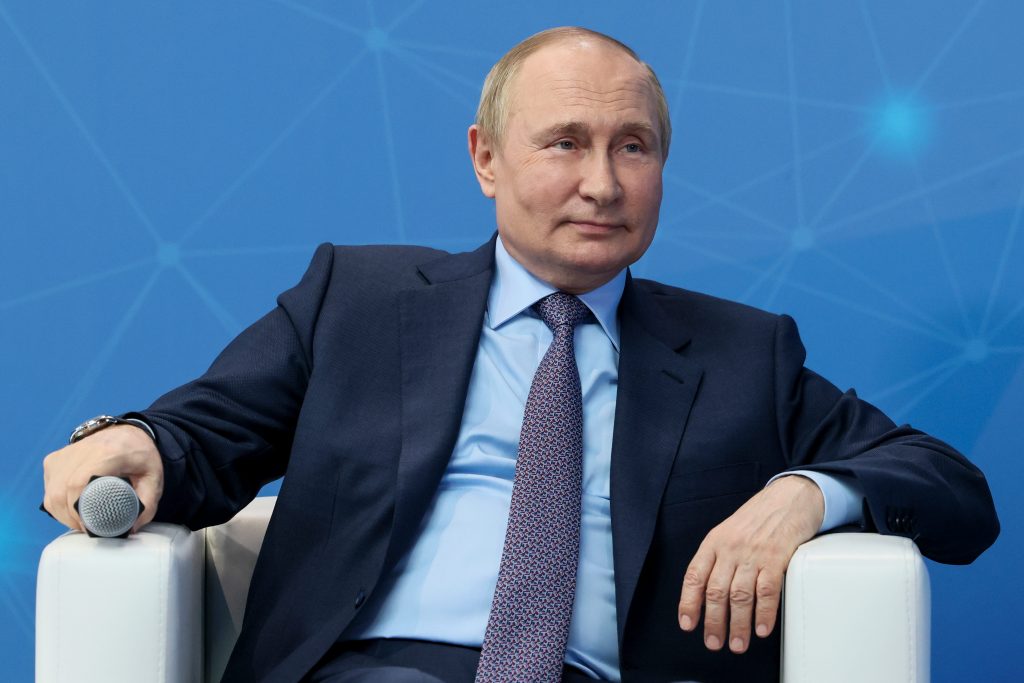- Putin compared his actions in Ukraine to those of Peter the Great, Russia's first emperor.
- He said when the czar was at war with Sweden in the 18th century the land was rightfully Russia's.
- Putin said he was also "returning" land and "strengthening" Russia.
Russian President Vladimir Putin directly compared himself to Czar Peter the Great on Thursday in his latest remarks justifying the invasion of Ukraine.
Putin said that when Peter the Great, the first emperor of Russia, waged war against Sweden in the 1700s, he was not conquering but returning land that rightfully belonged to Russia. Putin suggested he was doing the same thing in Ukraine.
"Peter the Great waged the Great Northern War for 21 years. It would seem that he was at war with Sweden, he took something from them. He did not take anything from them," Putin said, adding that in fact Peter the Great had "returned" what was Russia's, according to Reuters.
Putin made the televised comments on the 350th anniversary of Peter the Great's birth during a visit to an exhibit on the czar in Moscow. He went on to draw a direct parallel to the war in Ukraine, which the Kremlin has called a "special military operation."
"Apparently, it also fell to us to return and strengthen" Russia, Putin said. "And if we proceed from the fact that these basic values form the basis of our existence, we will certainly succeed in solving the tasks that we face."
—Ostap Yarysh (@OstapYarysh) June 9, 2022
Putin has previously argued Ukraine is not a legitimate country and that it was created by the Soviet Union, despite historians citing overwhelming evidence of Ukrainian culture and history that predates the USSR. After the dissolution of the Soviet Union, the Ukrainian people voted overwhelmingly for independence in a 1991 referendum.
Putin also said Thursday that when Peter the Great founded St. Petersburg, European countries did not recognize it as Russian, according to The New York Times. He appeared to be drawing a comparison between the Russian-occupied Ukrainian territories that the West today does not acknowledge as Russian, including Crimea.

